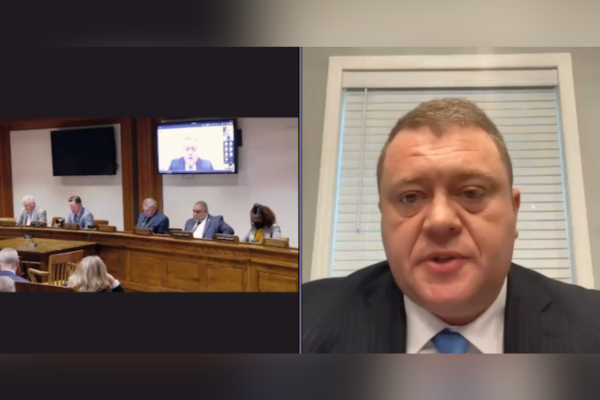Driving tax fairness in MA: Closing the rental car loophole
For years, rental car giants have evaded taxes, leaving everyday consumers to foot the bill, but a recent legislative hearing in Massachusetts could change the game.
(Sean Vinck, of Turo, testified virtually in the Massachusetts House on Tuesday.)
The loophole in question
Sales tax exemption: Rental car companies in Massachusetts have long enjoyed a sales tax exemption, leaving the state with more than a staggering $115 million in lost revenue annually.
Turo’s support: Sean Vinck, Associate General Counsel and Senior Director for Turo, testified in favor of closing this loophole, highlighting the need for fairness in the marketplace.
This exemption is not available to those who share vehicles on peer-to-peer car sharing platforms; giving only rental car companies this lucrative exemption while denying it to everyone else raises serious public policy problems.
At a minimum, giving a sales tax exemption on the purchase of vehicles only to rental car companies gives them a decided and artificial competitive advantage without any compelling policy, economic or social justification.
The magnitude of the problem
Nationwide impact: Rental car corporations purchase over 2 million vehicles each year, resulting in a $3.6 billion loss in sales tax revenue across the country.
Industry dominance: Just three companies – Hertz, Enterprise, and Avis – control 95% of the rental car market, at a cost of over $4 billion to taxpayers and consumers.
Deceptive practices in Massachusetts
Passing costs to consumers: In addition to skirting on the sales tax, rental car companies cleverly pass vehicle registration and licensing costs onto consumers, camouflaging them as service charges on receipts.
The proposed solution
Rep. Lawn's and Senator Lewis’s fix: Massachusetts lawmakers are considering a solution proposed by Rep. John J. Lawn, Jr., and Senator Jason Lewis (H2865 and S1869) aimed at closing the tax loophole.
Chamber of Progress support: The Chamber of Progress, a tech industry coalition (devoted to a progressive society, economy, workforce, and consumer climate) backs the bill, pointing out that the sales tax exemption was never officially approved by the state legislature.
Heated debate in the hearing
The cost to the Commonwealth: Committee Chair Susan Moran pressed Enterprise representatives on the $111 million tax loophole's cost. They conceded that the industry's subsidy estimate of more than $100 million was accurate.
"Wholesaler" debate: Rental car lobbyists argue for "wholesaler" status to keep their sales tax exemptions, but supporters of the bill vehemently disagree.
COVID-19 and rental car prices
Damage is done: On Tuesday, Enterprise warned H2865 and S1869 could harm their bottom line, but they never considered the damage to consumers from pricing out low-income customers with their pandemic-era prices.
Sky-high prices: During the pandemic, rental car companies charged exorbitant rates, leaving peer-to-peer car-sharing platforms to provide affordable transportation.
Benefits of peer-to-peer car sharing
Easing congestion: Alain Xiong-Calmes of the Chamber of Progress emphasized the benefits of a fair marketplace for peer-to-peer car sharing, which reduces traffic congestion and air pollution.
The path forward
A clear message: Massachusetts is signaling an end to the obscure sales tax loophole – no more free rides at the expense of residents and consumers.
Tax fairness: It's time for tax fairness to prevail, benefiting both the Commonwealth and its people.
A local Chamber of Commerce representative, testifying on unrelated legislation on Tuesday, highlighted that many in the workforce commute using two bridges that are in need of replacement. If H2865 and S1869 are enacted, it could mean additional funding for much needed infrastructure projects like this.

